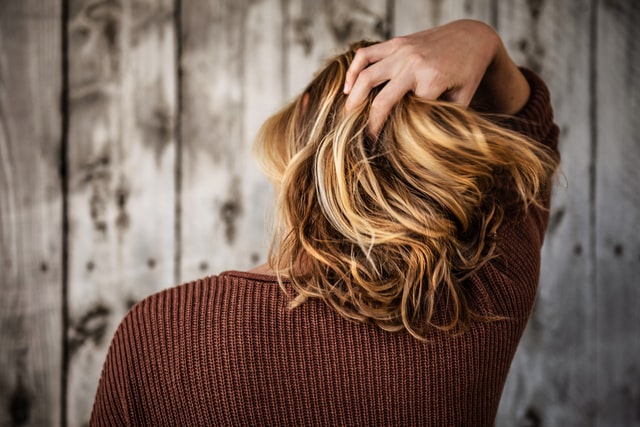Many of us spend a fortune on hair care products to get a thick, shiny mane. Yet most people are unhappy with their hair. From frizzy strands to thinning locks, it seems like no matter what you do, you can’t get that perfect hair. Those same products that are supposed to give you luscious locks may be behind your hair woes.
If you have dry, brittle hair, or your strands are falling out more than usual, your shampoo might be the culprit. Many shampoos are formulated with not-so-nice chemicals that can damage your locks and cause hair loss. So, which shampoos should you avoid? Look out for these bad ingredients in shampoos to make the right product choices for healthy hair:
Sulfates
You’re probably familiar with this ingredient. Sulfates are detergents that are used in shampoos to create lather. They’re commonly found as sodium laureth sulfate, ammonium laureth sulfate, and ammonium lauryl sulfate. These foaming agents work deep to remove dirt, excess oil, and dead skin cells from your hair and scalp.
Why are sulfates among the shampoo ingredients to avoid? Sulfates are harsh cleansers that strip your scalp of its natural oils. These oils are necessary to keep your hair moisturized and protected. Once removed, your hair becomes dry and frizzy. This makes your hair more susceptible to damage and breakage.
Sodium Chloride
You might remember this ingredient from your science classes. Sodium chloride is the chemical name for plain old salt. It is commonly added to shampoo formulations to give them a thicker consistency. This enhances the spreadability of shampoo throughout your hair to help you achieve a thorough clean.
Okay, so why is sodium chloride a bad ingredient in shampoos? Salt pulls water out of your scalp and hair. This can irritate your scalp and inflame hair follicles which can cause hair loss. In addition to scalp irritation, salt dehydrates your hair and makes it brittle. Brittle strands break off easily, leading to thinning hair.
Parabens

Image source
If you’re not already avoiding parabens like the plague, you should do so starting today. Parabens are a group of chemicals that are used as preservatives in personal care products.
Because shampoo formulations can biodegrade, parabens are used to prevent the growth of microbes and increase the product’s shelf life.
Despite its antimicrobial properties, parabens should be on your list of shampoo ingredients to avoid. Studies have found that parabens can disrupt your hormone system and cause an array of health disorders such as fertility issues and breast cancer. By creating hormonal imbalances, parabens can also promote hair loss.
Ethanolamines
Here is another group of bad ingredients in shampoos you should be aware of. Ethanolamines are emulsifying agents that allow water-soluble and oil-soluble substances to bind together. They make oil soluble in water so that the lipids on your hair and scalp can be washed away. On shampoo labels, they commonly appear as diethanolamine (DEA) and triethanolamine (TEA).
You should stay away from ethanolamines to protect your health and hair. According to the National Toxicology Program (NTP), chronic dermal exposure to DEA increases the risk of developing kidney and liver tumors. As toxic substances, ethanolamines can poison your system over time and make your hair fall out.
Phthalates
Does your shampoo make your hair smell good all day? Well, you can thank phthalates for that! Phthalates are chemical substances that are used in hair care products to make the fragrance in your shampoo stick to your hair. This helps the added fragrances to last longer and enhances that clean feeling of hair post shampooing.
Why are these fragrance fixatives bad ingredients in shampoos? Research has found that phthalates cause hormonal disruption. Phthalates interfere with the hormones that regulate the hair growth cycle, resulting in accelerated shedding and increased hair loss. Try to avoid shampoos with artificial fragrances as most contain phthalates.
Formaldehyde

Image Source
Out of all the shampoo ingredients to avoid, formaldehyde is probably the scariest. Formaldehydes are chemical compounds that are used as preservatives in hair care products. While formaldehyde itself is rarely used directly, manufacturers add formaldehyde-releasing compounds to shampoos to prevent mold and bacteria growth.
Formaldehydes are bad ingredients in shampoo for many reasons. For one, formaldehyde is a known human carcinogen. In addition to increasing the risk of cancer, formaldehyde can cause scalp dermatitis, leading to hair follicle damage and hair loss. Stay away from ingredients like DMDM hydantoin, quaternium-15, and ureas to prevent exposure to formaldehyde.
Alcohols
This is a tricky ingredient to avoid as not all alcohols are created equal. Fatty alcohols like cetyl alcohol, cetearyl alcohol, and stearyl alcohol are actually good for hair as they help your strands retain moisture. What you should stay away from are the bad alcohols. Common bad alcohols used in shampoos include ethyl alcohol, isopropyl alcohol, and propanol.
These alcohols are bad ingredients in shampoo because they evaporate quickly and can zap away your hair’s moisture, leaving your strands dehydrated. Parched strands are less elastic, which in turn makes them more prone to breaking off. Over time, this increased breakage can thin out your hair.
Pick a Safe Shampoo to Get Fabulous Hair
Bad hair is not always caused by stress, diet, or genes. In many cases, your shampoo may be the culprit behind your hair problems. Since we use shampoos on a regular basis, bad ingredients in shampoos can prove to be detrimental to your hair over time and contribute to hair thinning. It’s important to use the right shampoo to keep your hair thick, healthy, and moisturized.
With so many options to choose from, picking the right shampoo can be a daunting task. But now that you know which shampoo ingredients to avoid, you can make an informed decision. Always read shampoo labels to look out for the ingredients on this list. While it’s impossible to avoid them all, buy the safest shampoo you can find to protect your health and your hair.